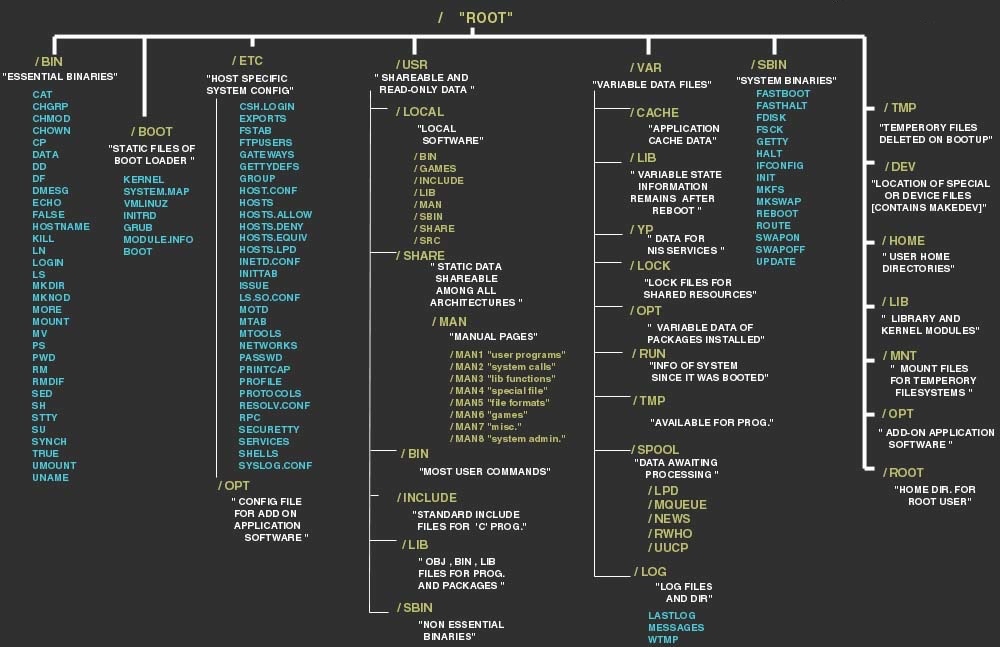As a beginner, I found it difficult to write unit tests in GoLang for anything that use actual production resources, like filesystems, APIs, or databases. In this post, I put together my findings in the hope I will save you some time.
I will show you how to abstract calls to functions using the filesystem through the Go os core library, which (at least up to Go version 1.19) is not particularly test-friendly. We will also see how to define unit tests on the relative mock functions.
Note that the concepts and strategies used here apply to other scenarios. This is commonly called dependency injection:
- Abstract the actual callsites in the functions you want to test using interfaces;
- Define an implementation of those interfaces wrapping the “actual” calls (OS, APIs, DBs, …);
- Write mock implementation for those interfaces not using the actual calls, and use them in your testing.
The code I am using below is taken from a project I am working on here.
Table of contents
Mocking Filesystem, File and FileInfo in Golang unit tests

Abstract your code and make it testable
Define interfaces to abstract filesystem operations (from Andrew Gerrand’s 10 things you (probably) don’t know about Go):
import (
"io"
"os"
)
type fileSystem interface { // Just an example, add all the functions you need
Lstat(name string) (os.FileInfo, error)
OpenFile(name string, flag int, perm os.FileMode) (file, error)
ReadDir(name string) ([]os.DirEntry, error)
Readlink(name string) (string, error)
Remove(name string) error
}
type file interface { // Just an example, add all the functions you need
Fd() uintptr
io.Closer
io.ReaderAt
io.Seeker
io.WriterAt
Stat() (os.FileInfo, error)
Sync() error
}
For normal filesystem operations, in the same package, define wrappers as follows:
// osFS implements fileSystem using the local disk
type osFS struct{}
func (*osFS) Lstat(n string) (os.FileInfo, error) { return os.Lstat(n) }
func (*osFS) ReadDir(n string) ([]os.DirEntry, error) { return os.ReadDir(n) }
func (*osFS) Readlink(n string) (string, error) { return os.Readlink(n) }
func (*osFS) OpenFile(n string, f int, p os.FileMode) (file, error) { return os.OpenFile(n, f, p) }
func (*osFS) Remove(n string) error { return os.Remove(n) }
And create a global variable holding the object used to perform filesystem operations.
The default value for this variable is the wrapper I defined before.
var dfFS fileSystem = &osFS{}
In your code, replace every os. call with the correspondent method of dfFS. For instance, this function:
func (fso *DockerFuseFSOps) Unlink(request rpc_common.UnlinkRequest, reply *rpc_common.UnlinkReply) error {
log.Printf("Unlink called: %v", request)
err := os.Remove(request.FullPath)
if err != nil {
return rpc_common.ErrnoToRPCErrorString(err)
}
return nil
}
becomes:
func (fso *DockerFuseFSOps) Unlink(request rpc_common.UnlinkRequest, reply *rpc_common.UnlinkReply) error {
log.Printf("Unlink called: %v", request)
err := dfFS.Remove(request.FullPath)
if err != nil {
return rpc_common.ErrnoToRPCErrorString(err)
}
return nil
}
Note that in this case, we just replaced os with dfFS.
Write unit tests
In this post, I am using stretchr/testify to write unit tests. This is not required, but will allow you to easily mock functions and tests expectations like function calls (or absence of calls).
Describing how to use testify is outside the scope for this post, see the GitHub page for more information and documentation.
In case you would rather not use testify, you can define your own mock filesystem similarly to what I do below, but adding your logic to record calls or return appropriate values.
Define the mock filesystem
The mock filesystem replaces the “concrete” implementation I provided before by defining all the functions specified in the fileSystem interface.
// mockFS implements mock fileSystem for testing
type mockFS struct{ mock.Mock }
func (o *mockFS) Remove(n string) error { args := o.Called(n); return args.Error(0) }
func (o *mockFS) Lstat(n string) (fs.FileInfo, error) { ... }
func (o *mockFS) ReadDir(n string) ([]fs.DirEntry, error) { ... }
func (o *mockFS) Readlink(n string) (string, error) { ... }
func (o *mockFS) OpenFile(n string, f int, p os.FileMode) (file, error) { ... }
In each test, instantiate the mock filesystem and assign it to the dfFS global variable of your package. This way, every call to methods of dfFS will use a correspondent mock implementation. For instance:
func TestWhatever(t *testing.T) {
// *** Setup
mFS := new(mockFS)
dfFS = mFS
...
With testify, you need now to register the expected calls to internal functions, then call the function you want to test. Finally, you assert the expectations.
A complete example for the Unlink() function above:
func TestUnlink(t *testing.T) {
// *** Setup
var (
mFS mockFS
reply rpc_common.UnlinkReply
err error
)
dfFS = &mFS // Set mock filesystem
dfFSOps := NewDockerFuseFSOps() // The object we want to test Unlink() method
// *** Testing error on Remove
mFS = mockFS{}
mFS.On("Remove", "/test/error_on_openfile").Return(syscall.ENOENT)
reply = rpc_common.UnlinkReply{}
err = dfFSOps.Unlink(rpc_common.UnlinkRequest{FullPath: "/test/error_on_openfile"}, &reply)
assert.Equal(t, rpc_common.UnlinkReply{}, reply)
if assert.Error(t, err) {
assert.Equal(t, fmt.Errorf("errno: ENOENT"), err)
}
mFS.AssertExpectations(t)
// *** Testing happy path
mFS = mockFS{}
mFS.On("Remove", "/test/happy_path").Return(nil)
reply = rpc_common.UnlinkReply{}
err = dfFSOps.Unlink(rpc_common.UnlinkRequest{FullPath: "/test/happy_path"}, &reply)
assert.Equal(t, rpc_common.UnlinkReply{}, reply)
assert.NoError(t, err)
mFS.AssertExpectations(t)
}
Here is an example mocking both a filesystem function and the os.File and os.FileInfo objects.
To do so, the mock implementation of Open() returns a mock file (i.e. mockFile), which is the implementation of the file interface we define earlier.
The mock file implements Stat() which returns a mock os.FileInfo object, namely mockFileInfo. mockFileInfo implements os.FileInfo interface, so it can be used transparently in the code that we are testing.
func TestOpen(t *testing.T) {
// *** Setup
var (
mFS mockFS
mFI mockFileInfo
mFile mockFile
reply rpc_common.OpenReply
err error
)
dfFS = &mFS // Set mock filesystem
dfFSOps := NewDockerFuseFSOps()
// *** Testing Open on a regular existing file
mFS = mockFS{}
mFile = mockFile{}
mFI = mockFileInfo{}
mFI.On("Sys").Return(&syscall.Stat_t{Mode: 0660, Nlink: 2, ...})
mFile.On("Fd").Return(uintptr(29))
mFile.On("Stat").Return(&mFI, nil)
mFS.On("OpenFile", "/test/openfile_reg", syscall.O_RDWR, fs.FileMode(0640)).Return(&mFile, nil)
mFS.On("Readlink", "/test/openfile_reg").Return("", nil)
reply = rpc_common.OpenReply{}
err = dfFSOps.Open(rpc_common.OpenRequest{FullPath: "/test/openfile_reg", ...}, &reply)
assert.Equal(t, rpc_common.OpenReply{FD: 29, StatReply: rpc_common.StatReply{Mode: 0660, Nlink: 2, ...}, reply)
assert.NoError(t, err)
mFI.AssertExpectations(t)
mFile.AssertExpectations(t)
mFS.AssertExpectations(t)
...
That’s all
Thanks for reading
